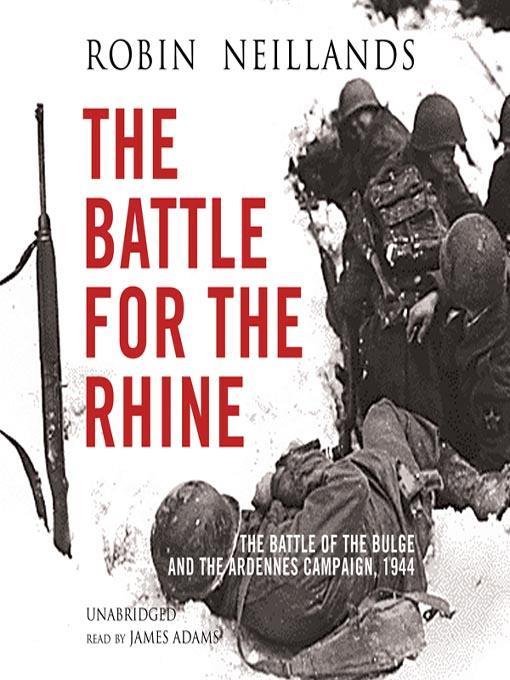
The Battle for the Rhine
The Battle for the Bulge and the Ardennes Campaign, 1944
- اطلاعات
- نقد و بررسی
- دیدگاه کاربران
نقد و بررسی

For decades, historians have argued about whether the Allies should have been able to end the war in Europe more quickly after the D-Day landings. In this audio, Robin Neillands discusses the post-Normandy battles of late 1944, including Arnhem and the Battle of the Bulge. British narrator James Adams captures the outrage of the author, who rails against the myths surrounding these campaigns. Adams's reading is brisk and energetic, though he is sometimes betrayed by the editing of this production. Occasionally, the tone is inconsistent and the sound uneven, but these are minor distractions in an otherwise compelling history. D.B. (c) AudioFile 2008, Portland, Maine

February 12, 2007
British historian Neillands, who died in January 2006, enthusiastically affirmed British military performances in the World Wars just as Stephen Ambrose heralded the "greatest generation." Here, he reopens the long-simmering controversy on command and strategy in the post D-Day campaign, asserting that Dwight Eisenhower may have been a "superb" supreme commander, but was "frequently lamentable" as a field general. Neillands particularly indicts Eisenhower for failing to understand the challenges to his broad-front strategy, and for failing to control George Patton and Omar Bradley. He describes U.S. policy as shaped by determination to control a campaign our resources dominated, and a near-toxic Anglophobia manifested in an enduring prejudice against British Field Marshal Bernard Montgomery. Monty is, predictably, Neillands's hero, whose single-thrust concept promised better results than Eisenhower's diffused efforts, and whose understanding of modern war marked him as a professional among American amateurs—Patton included. His difficult personality obscures the fact that he obeyed Eisenhower more loyally than Ike's own countrymen, Neillands argues. Montgomery emerges as a near-martyr to the Anglo-American alliance—an image sharply at variance with his own account of events. Despite constant praise of American GIs, Neillands's revisionist interpretation is likely to generate more heat than light—especially without providing significant new evidence.




دیدگاه کاربران